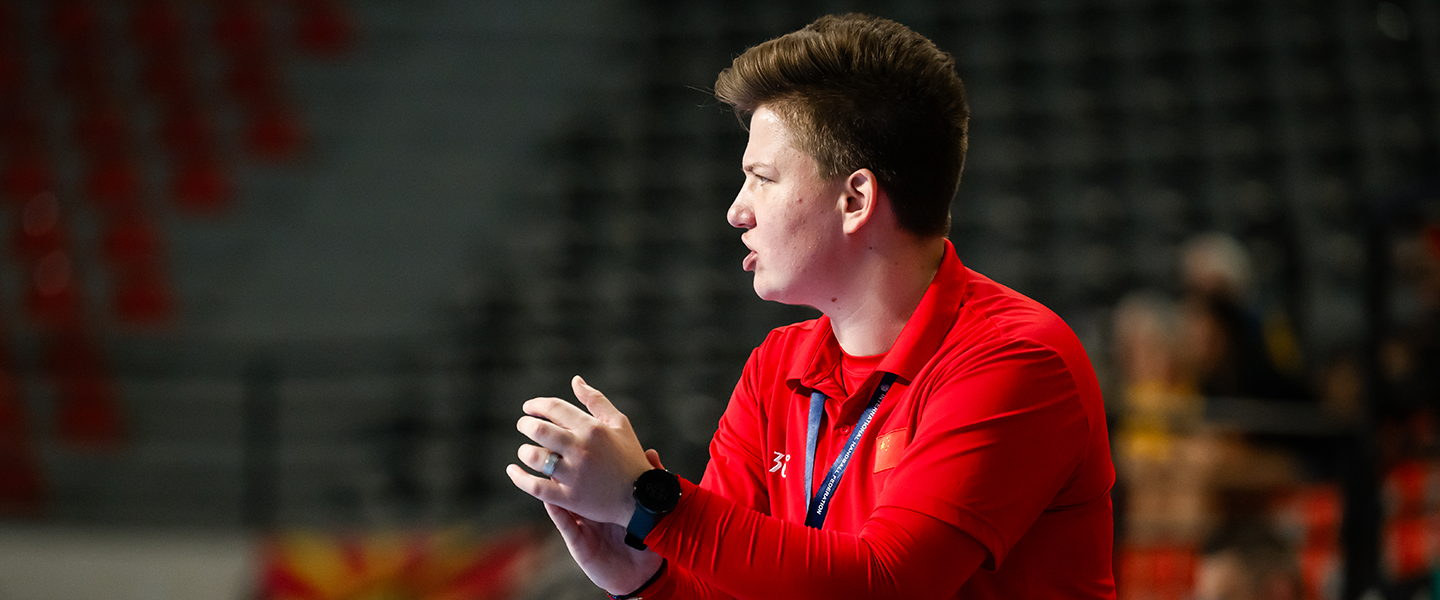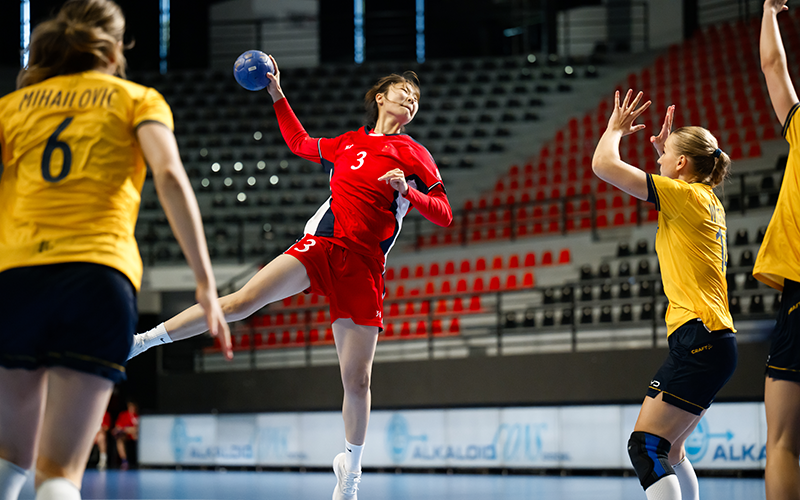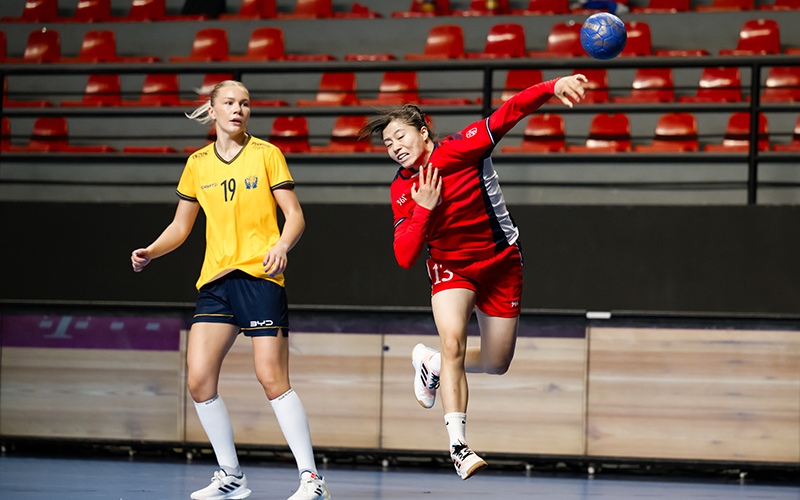News
Ambition, grit and determination highlight Lazovic's China plan to make the Asian team a powerhouse
21 Jun. 2024

The People’s Republic of China have qualified for the 19th time at the IHF Women’s Junior World Championship, making their comeback at North Macedonia 2024, after a six-years hiatus. The Asian side are one of the most consistent teams in the history of the competition, missing only five times in the 24 editions played so far.
While they finished sixth three times, in 1981, 1985 and 1989, they have missed out on a top-10 spot in their last eight appearances, finishing 10th when they hosted the competition. Now, they are back under the leadership of Suzana Lazovic, the former Montenegro player, who has tried to instill new life in the project.
The Asian side is one of the cornerstones of the IHF New Markets' Project , focusing on developing handball in crucial markets of the world, with the clear objective of improving the sport throughout the whole Globe. And Lazovic is a part of that focus on growth, being a former silver medallist with the Montenegro team at the London 2012 Olympic Games, as well as an European champion at the EHF EURO 2012.
“I'm so happy and so proud that I can be a head coach from the People’s Republic of China team, for this junior side, and I am also very happy because we qualified for the World Junior Championship and have a chance to play here against the top teams in the world,” says Lazovic.

Lazovic has already been part of the project for three years now and the results were clearly on display, as her never-say-die attitude and experience have rubbed off on a team which has made great steps forward in the last years. One of those results came last summer, when the People’s Republic of China secured the silver medal at the 2023 AHF Asian Women's Junior Handball Championship, a huge result, which was only the third silver medal at that level in 13 years and the first since 2017.
The biggest surprise caused by China was the 28:27 win against Japan in the semi-finals, which definitely shocked many, but not Lazovic, who has been constantly working tirelessly to help the Asian side reach its potential.
“I'm satisfied how we make progress in the last years and how China growing up with this European philosophy we are trying to implement. They already made a big step. This we have already shown in the Asian Championship last year. I really hope that China, in the future, can be better, the potential is there. Of course, we have to improve from the base, because when players are very young, they are missing some things, basic things in the ABC of handball, but we are working hard to improve that. For this, you need time, but we have already trained a lot under this system and I'm satisfied with my team developed. I hope and believe and trust that they will really fight and show us what we already work on,” adds Lazovic.
For Lazovic, going to China was a big step out of her comfort zone. Throughout her playing career, she only featured for Montenegrin giants Buducnost Podgorica, the team of the city she was born in and did not play outside her home country. With 57 matches and 72 goals for the national team, she was also featuring in one of the best teams in the world in the last decade, playing alongside Bojana Popovic or Katarina Bulatovic.

But when the offer came from China, she embraced it with open arms and went into the unknown not knowing exactly what to expect.
“It is totally different, a different mentality. It is difficult, but I always liked a challenge. All my life I was in Montenegro, I thought I have never left the country when I was a player. I thought that if I do not do this, it will be a mistake. They really gave me a lot of experience. They respect my work, they respect me, they show what they think. Also some of us can learn a lot from them. It's a different system, a typical handball, totally atypical handball for me,” adds Lazovic.
Lazovic has also learnt Chinese in the past three years, especially giving instructions to the team in real-time, as at first important bits and pieces were lost. "We were losing five-six seconds with the translation and in handball that is a lot, especially in crucial moments," explains China's coach.
But how does the China system work? According to Lazovic, handball is still an emerging sport in the Asian country, with the main challenge being to find and select young players to develop. But the growth displayed over the last years, including the better results at continental level should help in this regard.
“We all know China is a very big country, but we are working hard to make handball more popular than it is now. It’s been now plenty of decades since we won a match against Korea, for example. But we are getting there, we won against Japan in the Asian Championship last year with this junior team, so we are trying to improve the side,” adds China’s coach.
“But believe me, with this new start, with a new philosophy, players are buying in and are starting to love handball. And I really believe if this team continues with good work and with these seven or eight players from this squad in the senior team, if they can continue with good work in the next three or four years, I'm sure they can qualify for the Olympic Games.”
That might be ambitious, but this is the only way how an emerging side, part of the IHF New Markets’ Project can grow in the medium and long term. Right now, China have still a long way to develop, as proven in their maiden match at North Macedonia 2024, when they lost by 14 goals, 24:38, against Sweden.
For 25 minutes, the Asian side kept close and even exerted problems for Sweden, a well-travelled and experienced side. Nevertheless, with Lazovic’s approach, which has been getting better and better results in the past three years, everything seems possible.

